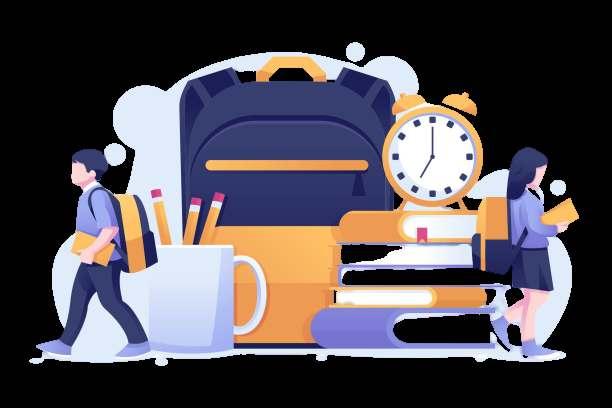
13 minute read
Physical Health and Well-being
from You-wA-H
by schoolindia
Webinar 3
Effects of Physical Inactivity during pandemic and how to maintain a good physical health during these times
Advertisement
Sedentary lifestyle can increase hypertension, chances of diabetes and have adverse effects on our mental health and nutrition levels. A study posted by the Lancet denoted physical inactivity as the fourth leading cause of death worldwide. Physical Inactivity is very common during the periods of self-isolation – a common scenario during the lockdown.
Our third webinar discussed the effects of Physical Inactivity in youth & adolescents. It highlighted the ways of maintaining good physical health during these times. The audience was also given an opportunity to interact with the eminent panel which included:
MS. LAVLEEN KAUR Dietitian, Clinical Nutritionist & Lifestyle Coach, Chandigarh
MS. KUNASHNI PARIKH Sport Psychologist from Mumbai, Ex- Vice Captain and Goalkeeper, India U-16 Football Team
MS. VIBHA KHOSLA - Principal, Sri Ram Global School, New Delhi
KEY TAKEAWAYS

PHYSICAL EFFECTS OF INACTIVITY • The lack of physical activities has resulted in obesity, pre-diabetic conditions and hormonal imbalances among adolescents. • People from all age groups have been inside and have stopped working on their muscle strength. It has impacted the bone density mass among children. Overall it has affected our immune system, as a cure for which people have consumed a variety of immunity boosting supplements that has resulted in hypertension in some cases. • During the lockdown, we have gained weight around our belly because all the visceral fat is stored there, in order to avoid the accumulation of the fat we should aim to complete 4000 steps a day at home.

PSYCHOLOGICAL EFFECTS OF PHYSICAL INACTIVITY • Our physical and mental health are tied together. When we exercise, we increase our muscle movement which improves our brain health, new-young nerve cells are generated that improve our memory, reduce stress, improve our sleep quality and positively affects our mood. • According to psychologists, there is no concept of dopamine detox, it is only enhanced by exercising. Additionally, it must be understood that exercises and their results vary from person to person.
DIET • A good diet includes all the essential micro + macro nutrients in sufficient quantity.
Our chewing power also plays an important role; if we build a good connection with our food, we build a good connection with our bodies.
KEY TAKEAWAYS
Students staying in PG should try to limit their intake of the three refined meals, they could take mini meals right before their main meals. These meals could include fruits, nuts, seeds, salad sticks, etc., and plenty of water should be consumed as it reduces hunger and detoxes the body. People tend to consume more comforting foods over healthy foods in tough times. We must try to limit our consumption of the unhealthy comfort foods. We crave sugary foods because sometimes we confuse thirst with hunger, even some mineral deficiencies lead to cravings. We must start our day with fruits instead of coffee or chai, because they are healthier and don’t lead to cravings.
ROLE OF CARETAKERS • Teachers are guiding students to create a routine for themselves and constantly motivate themselves and their peers to complete tasks, rewarding ourselves and others at the completion of a task also keeps us motivated. • Parents are advised to talk to their children positively and make them understand the temporary nature of our situation. They must try to divert their minds by discussing activities that could be taken up now or in the future. • Parents are the role models for their children, they must ensure that their child is eating the right amount of food at the right time. • Schools are taking steps to involve as much physical activity as possible to replace sedentary learning.

MAINTAINING HEALTH AMIDST THE PANDEMIC • We must maintain a balance in our diet, physical activity and sleep cycles to avoid any health risks. • The lockdown has demotivated everybody, which is affecting our lives. To keep ourselves motivated, we should follow a routine, dress up for it, create specific goals and make activities more fun and social in nature. • To reduce the impact of inactivity on our health, we must make simple changes in our diet– choosing healthier snacks over junk food and exercising for at least 15-20 minutes a day is effective but not sufficient. • Creating a family exercise time will help us get rid of physical inactivity while making it more fun and inclusive. • Digital platforms could be effectively used to engage in online exercise routines that suit us.
ADDITIONAL LIFESTYLE TIPS • Quality sleep is when you wake up feeling fresh, it’s not the number of hours. One sleeps well when one eats well and exercises regularly. This positively affects our mental health.
SURVEY FINDINGS
65% of the population spends less than an hour on physical activities on a daily basis, and only 7% spend close to 10 hours a day on physical activity. Nearly 50% of the students are unable to create a balance between digital learning and healthcare. 60% population was unable to find time to exercise and take care of their health. 30% (approx.) of the population lacks the motivation to exercise at home lockdown period. Approximately 30% of the population does not know simple lifestyle changes that could be introduced to mitigate the impact off physical inactivity.

Webinar 4
National Educational Policy 2020 & the Hope for better Adolescent Health
For years, there has been a lot of discussion on the mental trauma and stress associated with class 10th and 12th exams for adolescents. The process of giving entrance exams – each for different course and college has only salted fresh wounds. The National Education Policy 2020 aims to ensure healthy brain development and growth. It also aims to reduce the mental stress associated with education and make adolescents vocation-ready as soon as they finish education. Additionally, the NEP brings to light the much needed focus on Early Childhood Care & Education which often lays the foundation stone for the years of development to follow.
The webinar discussed the impact of NEP 2020 on adolescent health (with a focus on mental health) and the role of schools, teachers, and parents to ensure holistic emotional and brain development. With the convergence of policy advisors, CSR executives and school panel, the webinar also talked about how the curriculum and pedagogy can impact school health.
MR. ROHAN JOSHI Ex Associate Director of Research at Centre for Civil Society (Education and Policy)

MR. ATUL BENGERI Vice President, Director –Acumen Today Pvt. Ltd., an Education Specialist and Enthusiast
KEY TAKEAWAYS

ABOUT THE POLICY • The National Education Policy is forgoing the education system that was based on assessment and is now focusing on learning and empowering the students. It leaves scope for one’s own style of learning and application of what has been learnt. It aims at introducing a learning pattern that develops skills which would help us our entire lives. • The most crucial aspect of NEP is its implementation, which must begin at the early stages at home itself. • There could be many types of fallout in the implementation of the policy since it introduces many reforms at once, there would be issues of coverage of policy. Support of CSR’s is the key for implementation.

STUDENTS’ GROWTH • Four Cs define a person’s approach towards complex challenges, these are: Critical thinking/problem solving, Creativity, Communication and Collaboration. • The NEP, 2020 is providing students with an opportunity to explore; it has shifted the emphasis from core subjects, allowing students to study what they prefer, and further reducing the stress. • We need to develop a system that allows for creative and happy thinking which the examination system does not allow. Good schooling will result in a good future for
India.
MENTAL HEALTH • Mental health is not limited to issues like anxiety and depression among adolescents, it is also about cognitive development and NEP, 2020 has been framed to aim at
KEY TAKEAWAYS
positive cognitive development. Under the earlier education system, mental burn outs were very frequent that led to teenagers committing suicides and also has an impact on their mental well-being as adults. This especially becomes the most important issue among children who come from troubled family backgrounds. Mental health of teachers is as important as that of the adolescents because they are the once who and enriching the students with knowledge and building a hospitable environment for them in schools. Topics like sexual identity and menstrual health have an impact on the mental health of the adolescents, it is vital we discuss them with adolescents and clarify their doubts.
ROLES OF PARENTS AND TEACHERS • Moral science is a topic that needs to be taught at the earlier stages of life. The loop holes in the education system have been created because of the shortcomings in parenting system in the country. Schools alone can’t nurture their children; parents too have to take an active part in the same. • A value system is needed in schools to teach children basic emotions like empathy towards others and sensitize teachers about mental health conditions, NEP has made school counselors an important part of the school education system. • “Children with special needs” has become a very generic term now, each child has different emotional and intellectual capacities and therefore the parameters with each special need keeps changing. • The cross pollination of schools; where infrastructure and values could be shared by public and private schools. Pairing of schools would help in overcoming the shortcomings of both kinds of institutions and enhance the value systems as well.

SURVEY FINDINGS
87% of the students mostly feel stressed by their examination system. Nearly 50% of the population believes that NEP, 2020 will have a positive impact on the health of the adolescent, while the other 50% believes it will have an average impact. 59% of the population believe implementation is going to be biggest challenge faced by NEP, while the remaining believe there could other reasons such as adaptability of students, backlash from schools, etc. Over 97%of the attendees understood the National Education Policy, 2020 as opposed to 16.5% prior to the webinar.

Webinar 5
New Role of Teachers and Parents as Health Educators during & after pandemic
The pandemic has forced us to shift from our current roles and become adaptable to the changing demands of the world. Parents have had to become educators, teachers have become digital experts. There is a general understanding that the role of teachers and parents as Health Educators will maximize in the times to come. What will be the major challenges to this? What should these stakeholders be prepared for? Our fifth webinar in the series “Youth & Adolescent Health during Pandemic & After“ answered these questions, and provided the audience an opportunity to interact with the eminent and diverse panel which included:
DR. J.P. KAPOOR - Sr. Public Health Specialist(CMO) at Lal Bahadur Shastri Hospital, Ex-Director, Directorate of Family Welfare, Delhi

MS. APRAJITA GAUTAM - President - Delhi Parents Association
MS. POOJA BAKSHI JAITLY - Counselling Psychologist, School Counselor, Tagore International School, Delhi
KEY TAKEAWAYS

EFFECTS OF THE PANDEMIC ON CHILDREN • A child develops through exposure, coronavirus pandemic and the subsequent nationwide lockdown has stolen the opportunity from children to step out and explore.
Further, dietary issues and lack of physical activities has hampered their physical development. • The sudden lockdown has led severe to anxiety problems because the children don’t understand the severity of the issue and are having problems adapting to the current situation.

ROLES OF PARENTS • Parents have started playing multiple and overlapping roles in their lives, which has resulted in inefficiency on their part. Parents have become unavailable for children. • Parents need to come forward and discuss the issues with their children otherwise they may act out or act in and have severe mood swings, especially the adolescents. • Children read and understand the disturbed family setting and develop characteristics accordingly. Here, parents need to ensure that they manage their stress effectively and don’t let the children observe the negative energy in the household and be open to more social interactions with them. • The main underlying factor that has led to increased anxiety and stress among parents are financial conditions. Mind relaxing activities should be taken up by parents to manage their emotions. • Parents should understand that their children are missing their peer interactions and they have a need for social approval. Initiating parent-child interactions would relieve stress and anxiety.
KEY TAKEAWAYS
• Parents should also not be restrictive and should also support their child in discovering their creative potential that would help them grow and divert their mind. • Parents should also use social media as a means to understand the adolescent’s behavior, what and why the adolescent is interested in certain things could reveal a lot of information and help parents guide their children in the right direction. • In order to help children develop a better personality, when they are unable to go to school, parents must reinforce a routine that will help them lead organised lives and radiate positive energy, children must be taught techniques to regulate their positive and negative emotions. • Parents should not constantly pressurize their child to study or compare their child with other kids. If the child does not feel like studying then they should be motivated to take part in other activities, this helps in developing a healthy parent-child relatiship. ROLES OF TEACHERS AND SCHOOLS • The teachers need to be a little more open minded towards technology and students should appreciate their efforts. • When teachers impart good behavioural practices in a child, the child takes the lead and explains the same thing to 10 more children; this is how they indulge in peer-topeer knowledge system. • There is a need to take up health education in the curriculum for students to take it seriously, as it will help in improving their lifestyle. • Schools need to change their rules a little and conduct workshops that help all the three stakeholders.

ADDITIONAL POINTS TO BE CONSIDERED • The mental health of the stakeholders needs to be looked after as much as that of the child to positively and effectively develop a child’s personality. • The parent-teacher relationship must be maintained for healthy child development. • Parents and teachers should connect with the child and talk about their diet and hygiene practices. • Cyber literacy for parents and teachers must be arranged to ease the shift from physical to digital classrooms. • There is also a need to regulate the information taken in by the children because misinformation/sensationalized information only leads to increased anxiety among students.
SURVEY FINDINGS
91.50% participants strongly believed that the role of teachers and parents as health educators has increased during the lockdown. Over 80% of the population did not know about the Rashtriya Bal Swasthya Karyakram (RBSK) Scheme under the Ministry of Health and Family Welfare, Govt. of India. Over 86% of the population tries to keep themselves updated with health related information and 83% of the population would like to receive health related information mailed by us. 66% of the population is aware of the precautions needed to be taken when schools reopen and 65% of schools have also conducted health related sessions. Close to 35% of the population reported that health related sessions were not conducted in their schools.



